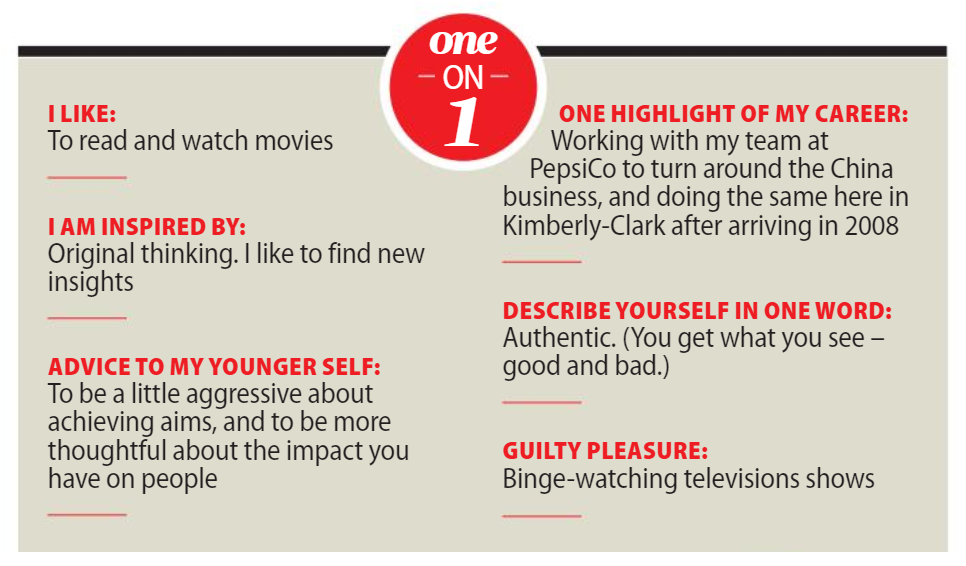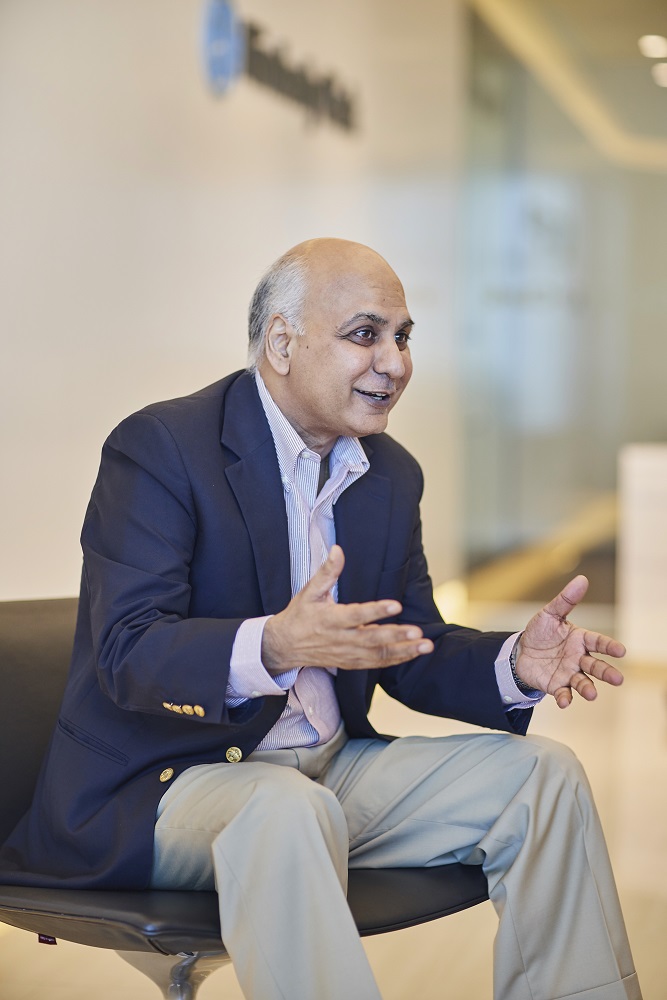“Simpler, leaner, faster” at Kimberly-Clark Asia-Pacific
- Yamini Chinnuswamy

How would you describe your general approach towards leadership and people management?
Something which I have pushed very hard for is the empowerment model. The foundation is that you are working with people who are capable, and who you can trust, and therefore empower.
That empowerment leads to consumer-centricity because these are the employees who see the change at the consumer end, and they are empowered to address whatever the consumer needs.
Our global CEO has also talked up the empowerment model, so that is the basic structure and framework under which we operate.
The other thing which I propagate is a philosophy of always being “simpler; leaner; faster”. It all leads up to this. It means not having too many meetings or too much bureaucracy, and being able to move fast to deal with the need of the hour.
Our corporate slogan is now actually: “Smarter, leaner, faster”.
When someone walks in the door for a job interview with Kimberly-Clark, how do you assess them?
I rely on my intuition a great deal. I guess after years of experience, and seeing certain behaviours, you can start to assess certain things.
Particularly important for me is: does the person have clarity of thinking? I frequently say, “If you’re boring me you’ll never get hired by me,” because if you’re boring me, it’s because you’re rambling. Normally, when you have clarity of thinking, you don’t ramble – because you know what you want to say, and you say it.
Now I’m nervous. I’ll have to make sure I don’t ramble! Is there anything else that you look for?
In addition to clarity of thinking, I would add that the person should be a good human being. This is very important to me.
The person must believe in a sustainable world. We have got to leave the world in a better place. I have two daughters and I feel deeply obliged to leave a world which is good.
Of course it is not simply a matter environmental sustainability – the person should care; they should be passionate.
They should also have a bias for action. I don’t want a person to be sitting there and pointing theories and not doing anything.
What advice would you have for business and HR professionals in Asia who are aspiring towards leadership positions?
I would first of all say that: don’t sell yourself short in your own mind. Have a basic belief in yourself.
I also still believe in the work ethic – and by that, I don’t mean working from six in the morning to 12 at night. Rather, don’t look down on any job. Make the most out of any opportunity you have, and learn from it. Because that is going to help you in the future.
Also, you can learn from good bosses and bad bosses. You’re not always going to have a good boss. Frankly, I have sometimes learned more from a bad boss than I have from a good boss, because you look at that situation, see the impact it’s having on the team, and you can say, “I’m never going to do that.”
Lastly, because of my own personal experiences: read. Read widely. Read history, read about cultures, travel, and broaden your mind. That is one of the pities for me in today’s world. People aren’t reading enough.
| Ilook for leaders who are, as I said, good human beings, and who are curious about the world. Their teams should therefore look at them and say, “Wow. I want people to respect me the way I respect this person“. |
So, they should look to develop interests in life, outside of work?
Yes, because when you lead people, they want to be able to trust you – and trust that you can guide them through.
I look for leaders who are, as I said, good human beings, and who are curious about the world. Their teams should therefore look at them and say, “Wow. I want people to respect me the way I respect this person”.
This is the retention strategy, too. You’ve got to make sure the compensation and all the basics are okay, of course, but it’s also about having leaders that people can look up to, who make them confident that they will win. Winning not in the sense of hitting targets, but in terms of getting where you need to or aspire to go.
That makes sense, because research does show that strong leadership retains talent, while poor leadership tends to result in frequent turnover. Is that true for you?
It is absolutely true in my mind that if you have a good leader you will see less turnover under that leader. You will still see some natural attrition, but that person will be a magnet for the company.
This is where our empowerment model here comes together. These people need to have clarity of thinking, they need to have a bias for action, they need to be good humans – and when these guys are empowered, their teams see them as fantastic leaders. I don’t have to do much more.
So the end goal is to continue to empower people to reach their potential?
Empowerment is the key word. You put ‘simpler, leaner, faster’ along with ‘empowerment’, and you have a winning model.
In Leaders Talk HR, HRM Magazine Asia sits down with C-suite movers and shakers to talk HR and leadership.







